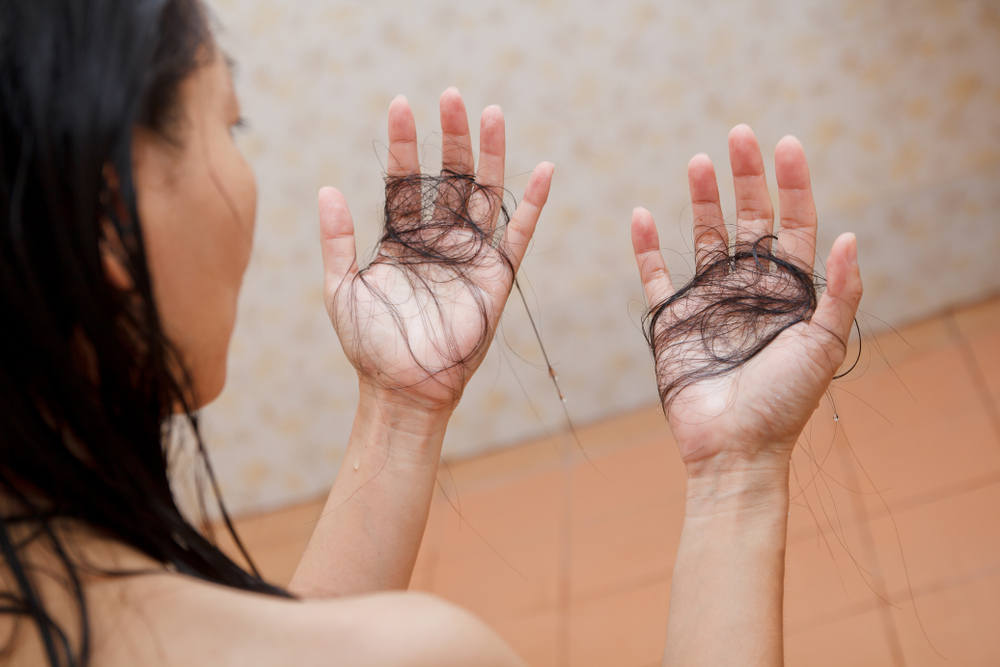Hair loss is a common concern that affects millions of people worldwide. Whether it’s due to genetics, lifestyle choices, or underlying health conditions, the impact on self-esteem and confidence can be significant. With so much misinformation floating around, it’s easy to become overwhelmed and confused about what’s true and what’s not. In this blog post, we’ll dissect some of the most prevalent hair loss myths and provide you with the facts you need to make informed decisions about your hair care routine. We’ll also share expert opinions and practical tips to help you maintain a healthy scalp and luscious locks.
Common Hair Loss Myths Debunked
Myth 1: Frequent Shampooing Leads to Hair Loss
One of the most pervasive myths is that washing your hair too often can lead to hair loss. While it’s essential to avoid harsh shampoos and over-washing, the act of shampooing itself does not cause hair loss. In fact, keeping your scalp clean can promote a healthy environment for hair growth. When you wash your hair, you remove dirt, oil, and product buildup that can clog hair follicles.
However, it’s crucial to choose a shampoo that suits your hair type and scalp condition. If you’re using a sulfate-free, gentle shampoo, frequent washing can actually be beneficial. The key is to listen to your hair and adjust your washing frequency based on how oily or dry your scalp feels.
Myth 2: Wearing Hats Causes Baldness
Another common misconception is that wearing hats can lead to baldness. This myth likely stems from the idea that hats can cut off circulation to the scalp or cause friction that damages hair follicles. The reality is that wearing a hat does not cause hair to fall out. Most hair loss is due to genetic factors or underlying health conditions, not external factors like headwear.
However, it’s essential to ensure your hat is clean and not too tight. A filthy hat can lead to scalp infections, while a tight one can cause tension and discomfort. If you love wearing hats, rest assured that they won’t contribute to hair loss as long as you maintain proper hygiene and comfort.
Myth 3: Only Men Experience Hair Loss
While male pattern baldness is more widely recognized, women are also susceptible to hair loss. Female pattern baldness, hormonal changes, and medical conditions like polycystic ovary syndrome (PCOS) can all contribute to hair thinning and loss in women. It’s a myth that hair loss only affects men; in reality, women can experience significant hair loss, often contributing to emotional distress and self-esteem issues.
The key to managing hair loss in women is early diagnosis and treatment. If you notice unusual hair shedding or thinning, consult a dermatologist to identify the underlying cause and develop an effective treatment plan.
Myth 4: Hair Loss is Always Genetic
While genetics play a significant role in hair loss, they are not the sole factor. Other elements like hormonal imbalances, nutritional deficiencies, autoimmune diseases, and environmental stressors can also contribute to hair thinning and balding. Assuming that hair loss is purely genetic can prevent you from exploring other potential causes and treatments.
By understanding the multiple factors that can contribute to hair loss, you can take a more comprehensive approach to treatment. This may include dietary changes, stress management techniques, and specific hair care products designed to strengthen and protect your hair.
Myth 5: Stress is Not a Significant Factor in Hair Loss
Contrary to popular belief, stress can indeed contribute to hair loss. Conditions like telogen effluvium, where stress pushes hair follicles into a resting phase, can result in significant shedding. Chronic stress can also exacerbate conditions like alopecia areata, where the immune system attacks hair follicles.
Managing stress is crucial for overall well-being and can help mitigate hair loss. Incorporating relaxation techniques such as yoga, meditation, and regular exercise can significantly reduce stress levels and promote healthier hair growth.
Evidence and Expert Opinions
Scientific Explanations and Studies
Various scientific studies have debunked these hair loss myths and provided a clearer understanding of the factors that genuinely affect hair health. For example, research has shown that while genetics play a role in hair loss, environmental factors and lifestyle choices are equally important. Studies have also highlighted the impact of stress on hair health, confirming that chronic stress can lead to conditions like telogen effluvium.
Understanding these scientific findings can help you make more informed decisions about your hair care routine. By focusing on the root causes of hair loss rather than falling for myths, you can take proactive steps to protect and enhance your hair’s health.
Insights from Dermatologists and Hair Care Experts
Dermatologists and hair care experts agree that many common hair loss myths are unfounded. According to Dr. Jane Smith, a board-certified dermatologist, “Washing your hair frequently does not cause hair loss. In fact, a clean scalp is essential for healthy hair growth.” Similarly, hair care expert John Doe emphasizes the importance of understanding the multifaceted nature of hair loss. “It’s rarely just one factor. Genetics, stress, diet, and even the products you use can all play a role,” he explains.
Listening to experts can provide valuable insights and dispel common misconceptions. Trusting professional advice over hearsay ensures that you’re taking the best possible care of your hair.
Practical Advice for Healthy Hair and Scalp
Tips for Maintaining Hair Health
Maintaining healthy hair requires a balanced approach that includes a nutritious diet, proper hydration, and a suitable hair care routine. Eating a diet rich in vitamins and minerals like biotin, zinc, and vitamins A and E can significantly improve hair strength and growth. Additionally, drinking plenty of water helps to keep your scalp hydrated and free from dryness.
Regularly trimming your hair to remove split ends and avoiding excessive heat styling can also help maintain hair health. By incorporating these habits into your daily routine, you can promote healthier, stronger hair.
Recommended Lifestyle Changes and Hair Care Routines
In addition to diet and hydration, making specific lifestyle changes can positively impact your hair health. Reducing stress through activities like yoga, meditation, or even a simple walk can lower cortisol levels, which are linked to hair loss. Ensuring you get enough sleep and exercise also contributes to overall well-being, including hair health.
When it comes to your hair care routine, opt for products that are free from sulfates and parabens, as these can strip your hair of its natural oils. Using a wide-toothed comb to detangle your hair when wet can prevent breakage, and applying a deep conditioning treatment once a week can keep your hair moisturized and nourished.
Conclusion
Understanding the truth about common hair loss myths is essential for anyone looking to maintain a healthy scalp and shiny, strong hair. By debunking myths like frequent shampooing leading to hair loss or stress not being a significant factor, we can focus on what truly matters. Listening to scientific evidence and expert opinions provides a solid foundation for effective hair care.
Taking practical steps to maintain hair health, such as adopting a balanced diet, managing stress, and using appropriate hair care products, can make a significant difference. Remember, if you’re experiencing severe hair loss, it’s always best to seek professional advice for a tailored treatment plan.
Stay informed, take proactive measures, and enjoy the benefits of a healthy scalp and beautiful hair. Your journey to better hair health starts with knowledge and action. If you’re looking for more personalized advice, consider consulting with a dermatologist or a hair care specialist who can guide you in the right direction.


